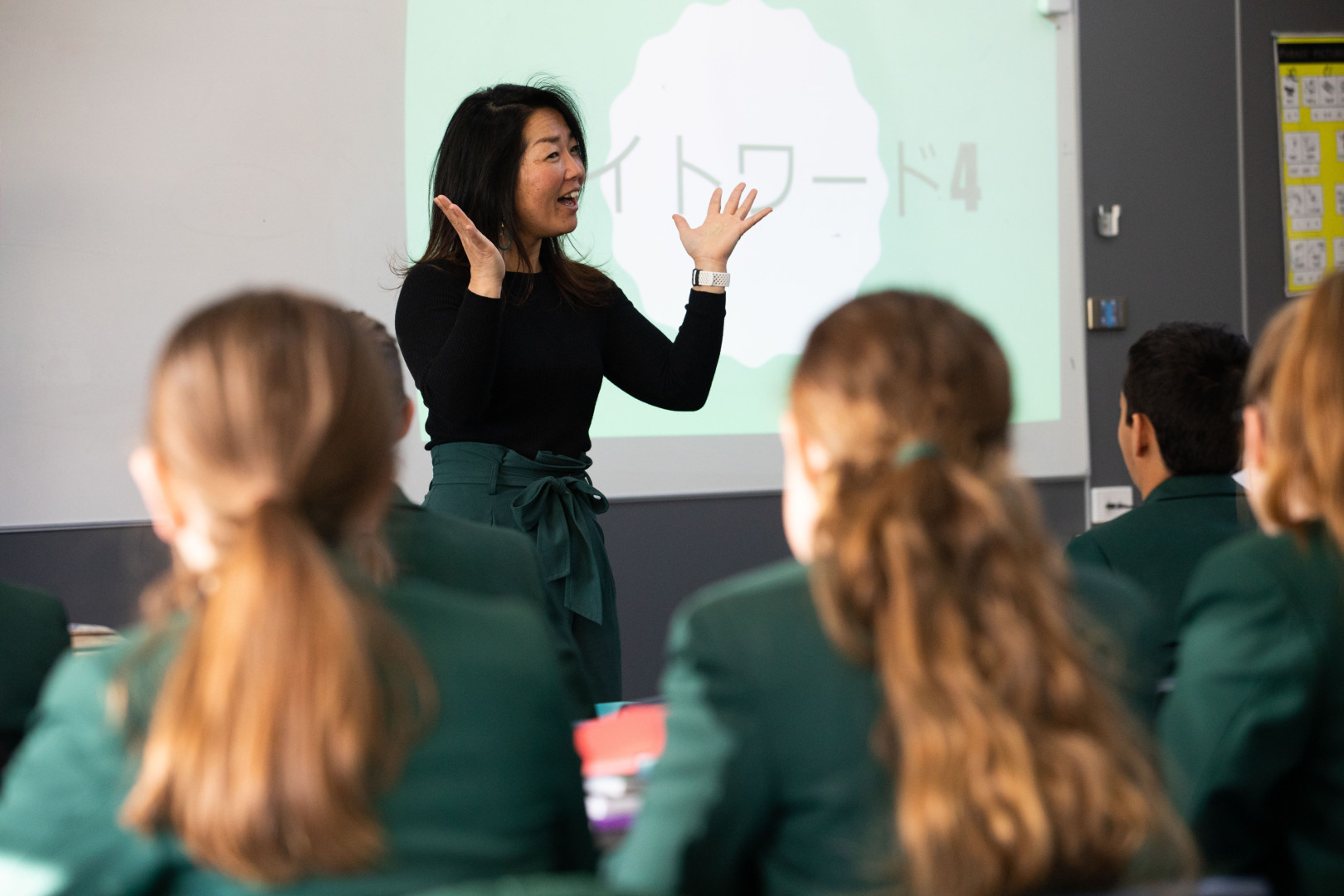At Gippsland Grammar we place great emphasis on fitness and health. Our students participate in Physical Education and Health lessons every week from Years 7 to 9 and Physical Education in Year 10. Our VCE Health and Human Development and Physical Education courses continue through to Year 12. Year 7, 8 and 9 students study an extensive range of health-related issues in our health program. Drug and Alcohol issues are a focus of this program.
Year 9
Healthy lifestyles and physical well-being are crucial to adolescents leading active and challenging lives. Physical Education at Year 9 consolidates the range of physical skills acquired in earlier years and provides the opportunities for the development and maintenance of sound levels of fitness. This course encourages students to pursue leisure and recreation activities in their own time by providing them with enjoyable experiences in the core curriculum. The value of sportsmanship and team participation is fostered at all times. Many of the activities are team-based and mixed gender sports with an emphasis on participation and active enjoyment. Students are assessed continually throughout the course and should demonstrate improving general physical skills. Peer teaching is an essential element of this assessment. The theory aspect covers health and wellbeing issues relevant to young people, including Mental Health and Relationships.
Faster, Fitter, Stronger
Students will aim to improve their own level of fitness through a self-designed training/fitness routine that adheres to the basic principles of training and nutrition. Students will seek to improve their understanding of the various methods of training and assessment that can be utilised to achieve the goal of making themselves ‘Faster, Fitter, Stronger’. This subject will include a practical component and will also give students a basic understanding of important elements of the VCE Physical Education course. Assessment will be based on effort and participation in practical training sessions and analysis and application of key skills and knowledge. Written Assessment will be based on the production of a report that includes an overall plan of their training, a training diary or log, a justification of why they have chosen a certain training method, their pre and post training fitness test results, and an overall summary of the success or otherwise of their program.
Human Movement
Human Movement is recommended for students who have a strong interest in sport and sports science and for those students who are interested in selecting VCE Physical Education for study in Year 11 and 12. The focus of this subject is to introduce students to some of the theoretical concepts contained in the Year 11 & 12 VCE Physical Education course and includes topics such as biomechanics, physiology, energy systems, anatomy and sports injury treatment and prevention - as they apply to sport and the improvement of sporting performance. The subject involves a combination of theoretical and practical learning experiences. It is intended that students will develop an understanding of the human body and skills that will allow them to improve their own sporting performance.
Year 10
In Year 10, Physical Education is a compulsory subject; the time allocation being four lessons per cycle, normally this comprises of a double lesson each week.
The focus in Year 10 is upon enjoyment and teamwork as students undertake a wide range of activities. In Term 1 the topic is racquet sports and athletics. Term 2 covers fitness related activities and Netball. In Term 3, students participate in Volleyball and take part in an interclass competition in sports ranging from indoor soccer, volleyball, lacrosse, handball, and indoor hockey. Term 4 activities cover a range of elective sports.
Sports uniform is to be work and full participation is expected.
VCE
Health and Human Development
VCE Health and Human Development provides students with broad understandings of health and wellbeing that reach far beyond the individual. Students learn how important health and wellbeing is to themselves and to families, communities, nations and global society. Students explore the complex interplay of biological, sociocultural and environmental factors that support and improve health and wellbeing and those that put it at risk. The study provides opportunities for students to view health and wellbeing, and development, holistically – across the lifespan and the globe, and through a lens of social equity and justice.
VCE Health and Human Development is designed to foster health literacy. As individuals and as citizens, students develop their ability to navigate information, to recognise and enact supportive behaviours, and to evaluate healthcare initiatives and interventions. Students take this capacity with them as they leave school and apply their learning in positive and resilient ways through future changes and challenges.
VCE Health and Human Development offers students a range of pathways including further formal study in areas such as health promotion, community health research and policy development, humanitarian aid work, allied health practices, education, and the health profession.
Unit 1: Understanding health and wellbeing
This unit looks at health and wellbeing as a concept with varied and evolving perspectives and definitions. It takes the view that health and wellbeing are subject to a wide range of contexts and interpretations, with different meanings for different people.
Areas of Study
- Health perspectives and influences
- Health and nutrition
- Youth health and wellbeing
Unit 2: Managing health and development
This unit investigates transitions in health and wellbeing, and development, from lifespan and societal perspectives. Students look at changes and expectations that are part of the progressions from youth to adulthood.
Areas of Study
- Developmental transitions
- Health care in Australia
Unit 3: Australia’s health in a globalised world
This unit looks at health, wellbeing and illness as multidimensional, dynamic and subject to different interpretations and contexts. Students begin to explore health and wellbeing as a global concept and to take a broader approach to inquiry.
Areas of Study
- Understanding health and wellbeing
- Promoting health and wellbeing
Unit 4: Health and human development in a global context
This unit examines health and wellbeing, and human development in a global context. Students use data to investigate health status and burden of disease in different countries, exploring factors that contribute to health inequalities between and within countries, including the physical, social and economic conditions in which people live.
Areas of Study
- Health and wellbeing in a global context
- Health and sustainable development goals
Outdoor and Environmental Studies
Outdoor and Environmental Studies provides students with the skills and knowledge to safely participate in activities in outdoor environments and to respect and value diverse environments. The blend of direct practical experience of outdoor environments with more theoretical ways of knowing, enables informed understanding of human relationships with nature.
Historically, humans have modified outdoor environments to meet survival, commercial, conservation and recreation needs. For many, outdoor environments have become places of adventure, relaxation, scientific study, social action and enterprise. Outdoor environments also provide space for connectedness with nature and opportunities for reflecting upon the past, present and future. These varying values and approaches generate differing impacts and can cause pressures and tensions between user groups, leading to issues concerning the preservation and sustainability of outdoor environments. Outdoor and Environmental Studies seeks to enable students to critically analyse these differing relationships, impacts and issues, providing the knowledge and skills to participate in and contribute to contemporary society. Outdoor and Environmental Studies offers students a range of pathways, and caters to those who wish to pursue further formal study in areas where interaction with outdoor environments is central, such as natural resource management, nature- based tourism, outdoor leading and guiding, environmental research and policy, education, and agriculture.
Unit 1: Exploring Outdoor Experiences
This unit examines the ways in which humans understand and relate to nature through experiences of outdoor environments.
Areas of Study
- Motivations for outdoor experiences
- Influences on outdoor experiences
Unit 2: Discovering Outdoor Environments
This unit focuses on the characteristics of outdoor environments and different ways of understanding them, as well as the human impacts on outdoor environments.
Areas of Study
- Investigating outdoor environments
- Impacts on outdoor environments
Unit 3: Relationships with Outdoor Environments
The focus of this unit is the ecological, historical and social contexts of relationships between humans and outdoor environments in Australia.
Areas of Study
- Historical relationship with outdoor environments
- Relationships with Australian environments since 1990
Unit 4: Sustainable Outdoor Relationships
In this unit students explore the sustainable use and management of outdoor environments. They examine the contemporary state of environments in Australia, consider the importance of healthy outdoor environments, and examine the issues in relation to the capacity of outdoor environments to support the future needs of the Australian population.
Areas of Study
- Healthy outdoor environments
- Sustainable outdoor environments
Physical Education
The study of VCE Physical Education enables students to integrate a contemporary understanding of the theoretical underpinnings of performance and participation in physical activity with practical application. Through engagement in physical activities, VCE Physical Education enables students to develop the knowledge and skills required to critically evaluate influences that affect their own and others’ performance and participation in physical activity. This study equips students with the appropriate knowledge and skills to plan, develop and maintain their involvement in physical activity, sport and exercise across their lifespan and to understand the physical, social, emotional and cognitive health benefits associated with being active. The study also prepares students for employment and/or further study at the tertiary level or in vocational education and training settings in fields such as exercise and sport science, health science, education, recreation, sport development and coaching, health promotion and related careers.
Unit 1: The human body in motion
In this unit students explore how the musculoskeletal and cardiorespiratory systems work together to produce movement.
Areas of Study
- How does the musculoskeletal system work to produce movement?
- How does the cardiorespiratory system function at rest and during physical activity?
Unit 2: Physical activity, sport and society
This unit develops students’ understanding of physical activity, sport and society from a participatory perspective.
Areas of Study
- What are the relationships between physical activity, sport, health and society?
- What are the contemporary issues associated with physical activity and sport?
Unit 3: Movement skills and energy for physical activity
This unit introduces students to the biomechanical and skill acquisition principles used to analyse human movement skills and energy production from a physiological perspective.
Areas of Study
- How are movement skills improved?
- How does the body produce energy?
Unit 4: Training to improve performance
In this unit students analyse movement skills from a physiological, psychological and socio-cultural perspective, and apply relevant training principles and methods to improve performance within physical activity at an individual, club and elite level.
Areas of Study
- What are the foundations of an effective training program?
- How is training implemented effectively to improve fitness?
VCE VET Studies
Certificate III in Health Services Assistance
The VCE VET Health Services Assistance program aims to provide participants with the knowledge and skills to achieve competencies that will enhance their employment prospects in the health industry and to enable participants to gain a recognised credential and to make an informed choice of vocation or career path. These qualifications cover workers who provide assistance to allied health professionals and other health professionals with the care of clients.



